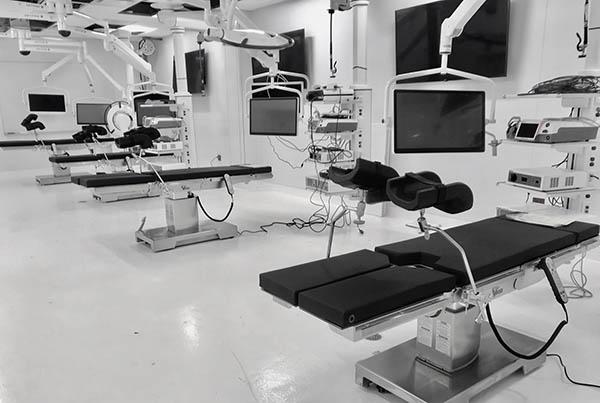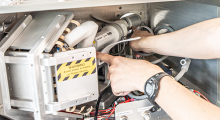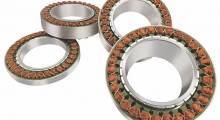Last month, Smith & Nephew PLC opened a research and development center in Pittsburgh's Strip District. The company said it has tripled its floor space in Pittsburgh in response to the growing demand for medical robotics.
Smith+Nephew transformed the former site of a cardboard-box warehouse into a state-of-the-art facility called The Stacks. It joins other technology firms at Three Crossings 2.0, including Apple and autonomous driving company Argo AI.
U.K.-based Smith+Nephew also this week announced another R&D center for digital surgery and robotics innovation in Munich, Germany. The company's U.S.-based manufacturing is in Oklahoma City and Memphis.
Robots part of 'continuum of care'
Smith+Nephew said its proprietary technologies “create a seamless connection through a continuum of care by combinging robotics, software, and data to improve outcomes.”
“The need for technology in the healthcare space has expanded in the past decade,” said Riddhit Mitra, director of product management for robotics at Smith+Nephew. “Robotics is growing at 27% to 37%, and we're following that trend.”
“We chose to focus on orthopedic and sports medicine because of our strong culture—'Life unlimited' is our purpose statement,” he told Robotics 24/7. “We began with partial knee replacements, which require a high degree of precision. We're also in a highly regulated environment, so we need to build safe, effective technologies to improve the quality of care.”
“As we started expanding, we heard from customers about total knees,” Mitra said. “Twenty to 25% of patients who undergo those surgeries report dissatisfaction. We see other opportunities for advanced technologies such as robotics and machine learning.”
CORI applies AI to surgery
Smith+Nephew launched the second generation of its CORI surgical system last year. Despite the COVID-19 pandemic, the launch went smoothly, said Mitra. “We're not in a position to slow our growth,” he added.
The company said CORI provides portable, handheld robotics with the smallest footprint, as well as the benefits of artificial intelligence.
“CORI includes a lot of improved computing capabilities and fewer human touch points in registration,” Mitra explained. “Because of our advanced algorithms in predicting patients' anatomy, we don't require preoperative CT scans.”
Smith+Nephew builds on university connections
In 2015, Smith+Nephew acquired Blue Belt Technologies, a spinoff from Carnegie Mellon University (CMU). CMU founded the world's first robotics Ph.D. program in 1988 and claims that its Robotics Institute is the world's largest robotics R&D organization. The institute includes the National Robotics Engineering Center, which has been commercializing technlogies for practical industrial applications for more than 25 years.
“I came out of CMU and joined Blue Belt Technologies, which was just starting off with medical robotics,” Mitra said. “Our first offices and production of systems were in Pittsburgh, and even though Smith+Nephew is international, we've continued expanding here.”
Smith+Nephew also partners with local startups and the University of Pittsburgh Medical Center (UPMC) on R&D and surgeon education. Pittsburgh's academic institutions awards 12,000 technology degrees and certificates per year, making it one of the top five cities in the U.S.
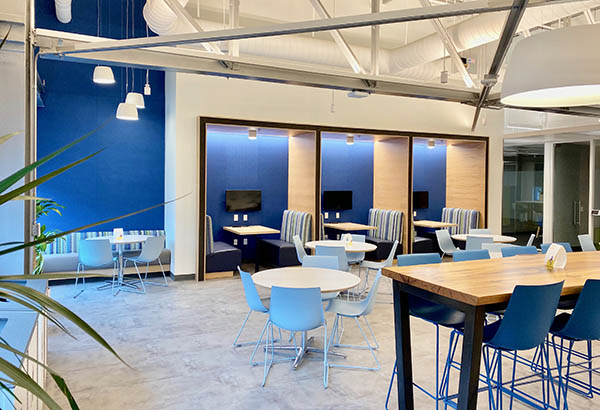
Pittsburgh provides a deep talent pool
Smith+Nephew chose to open its R&D center in Pittsburgh because the tech talent pool there has grown by 20% to more than 45,000 workers, and regional robotics employment has tripled since 2011.
“We decided to stick with robotics and enabling technologies because of the talent pool in Pittsburgh,” said Mitra. “Continuous expansion in this space has been phenomenal. When Blue Belt was acquired, we had about 60 people in the quality and regulatory realms. We now have almost 200, with significant growth in the robotics and autonomous technologies division.”
“There's a lot of local talent from CMU, the University of Pittsburgh, and Duquesne, and there's also a strong medical hub with the UMPC and Allegheny Health Network,” Mitra said. ““There has been an influx of people from outside of Pittsburgh, including software, mechanical, and electrical engineers and biomedical experts—all of whom shape our robotics division.”
What about competition with local developers of self-driving vehicles, such as Aurora, Motional, TuSimple, and Uber?
“I think competition is great—if there wasn't any, this would be an isolated industry,” replied Mitra. “We believe we're in the nascent phases of where technology can make an impact in healthcare. When it comes to talent acquisition, it comes down to where people want to apply their education and help others.”
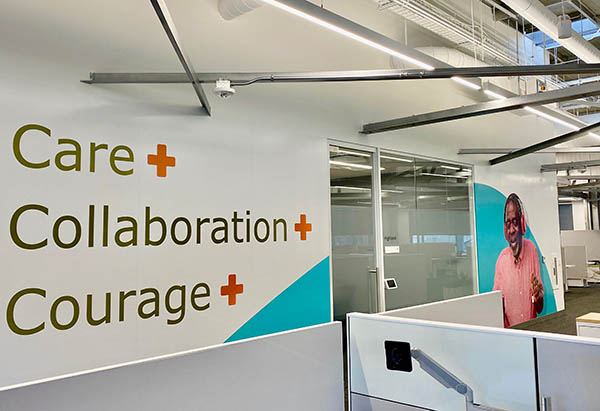
Investing in the future of surgical robotics
“In the past couple of years, Smith+Nephew has focused on its three cultural pillars: care, collaboration, and courage,” Mitra said. “Our new facilities provide a flexible work environment for our engineers. We follow COVID-19 safety protocols, and they can meet and develop projects virtually.
“When it comes time to use 3D printers, lathes, and CNC machines, we have people building and testing prototypes today,” he added. “We had more than 100 people at our grand opening.”
“In addition to our state-of-the art lab, we can train surgeons from across the U.S. and even internationally on the second-generation CORI platform,” said Mitra. “We're all very excited to start a new chapter in Pittsburgh with our new facilities and to see continued growth and investment in this space.”
About the Author
Follow Robotics 24/7 on Linkedin
Article topics
Email Sign Up

